
The Asian Games, also known as Asiad, is a continental multi-sport event held every four years among athletes from all over Asia. The Games were regulated by the Asian Games Federation (AGF) from the first Games in New Delhi, India, until the 1978 Games. Since the 1982 Games, they have been organized by the Olympic Council of Asia (OCA), after the breakup of the Asian Games Federation. The Games are recognized by the International Olympic Committee (IOC) and are described as the second largest multi-sport event after the Olympic Games.

The India national football team represents India in international football and is governed by the All India Football Federation (AIFF). The team is affiliated to FIFA and Asian Football Confederation (AFC).

The South Korea national football team represents South Korea in men's international football and is governed by the Korea Football Association. South Korea has emerged as a major football power in Asia since the 1980s, having participated in ten consecutive and eleven overall FIFA World Cup tournaments, the most for any Asian country. Despite initially going through five World Cup tournaments without winning a match, South Korea became the first Asian team to reach the semi-finals when they co-hosted the 2002 tournament with Japan. South Korea also won two AFC Asian Cup titles, and finished as runners-up on four occasions. Furthermore, the team won three gold medals and three silver medals at the senior Asian Games.
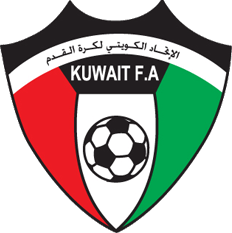
The Kuwait national football team is the national team of Kuwait and is controlled by the Kuwait Football Association. Kuwait made one World Cup finals appearance, in 1982, managing one point in the group stages. In the Asian Cup, Kuwait reached the final in 1976 and won the tournament in 1980.

The United Arab Emirates national football team represents United Arab Emirates in international association football and serves under the auspices of the country's Football Association.
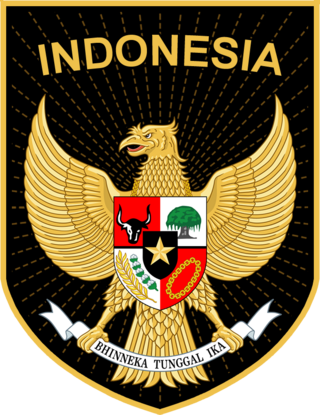
The Indonesia national football team represents Indonesia in international association football. It was the first Asian team to participate in the FIFA World Cup, particularly in the 1938 edition as Dutch East Indies. The 6–0 loss to eventual finalists Hungary in the first round remains the nation's only appearance in the World Cup. Thus, Indonesia holds the World Cup record as the team with the fewest matches played (1) and one of the teams with the fewest goals scored (0).

The Pakistan national football team represents Pakistan association football in FIFA-authorized events and is controlled by the Pakistan Football Federation, the governing body for football in Pakistan. Pakistan became a member of FIFA in 1948 joining the Asian Football Confederation and its national team debuted in 1950.

The 1990 Asian Games also known as the XI Asiad and the 11th Asian Games, were held from September 22 to October 7, 1990, in Beijing, China. This was the first Asian Games held in China.
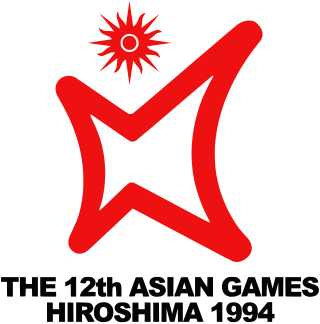
The 1994 Asian Games, also known as the XII Asiad and the 12th Asian Games, were held from October 2 to 16, 1994, in Hiroshima, Japan. The main theme of this edition was to promote peace and harmony among Asian nations. It was emphasized by the host because the venue was the site of the first atomic bomb attack 49 years earlier. Due to the 1991 Gulf War, Iraq was suspended from the games. The games debuted former republics of the Soviet Union: Kazakhstan, Kyrgyzstan, Tajikistan, Turkmenistan, and Uzbekistan.
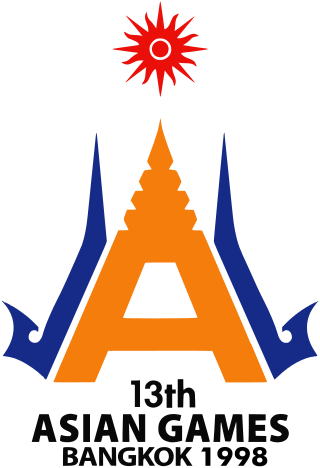
The 1998 Asian Games, officially known as the 13th Asian Games and the XIII Asiad, was an Asian multi-sport event celebrated in Bangkok, Thailand from December 6 to 20, 1998, with 377 events in 36 sports and disciplines participated by 6,554 athletes across the continent. The football event commenced on 30 November 1998, a week earlier than the opening ceremony.
The Singapore National Olympic Council (SNOC) is the National Olympic Committee and National Paralympic Committee for the Republic of Singapore. It was founded in 1947 as the Singapore Olympic and Sports Council (SOSC) before renaming to its current iteration in 1970.

The Asian Winter Games (AWG) is an international multi-sport event held every four years for members of the Olympic Council of Asia (OCA) which features winter events. The Japanese Olympic Committee first suggested the idea of holding a winter version of the Asian Games in 1982. Their efforts were rewarded when they were finally given hosting rights for the first edition that was held in Sapporo in 1986, as the city had the infrastructure and expertise gained from hosting of the 1972 Winter Olympics.
The men's football tournament has been a regular Asian Games sporting event since the 1951 edition, while the women's tournament began in 1990.
The athletics competition at the 1990 Asian Games was held at the Olympic Sports Centre in Beijing, China from 27 September to 3 October.
Football at the 1990 Asian Games was held in Beijing, China from 23 September to 6 October 1990.

The Indian National Kabaddi Team represents India in international men's kabaddi competitions. The team is by far the most successful national kabaddi side of any country, winning gold medals at the Asian Games in 1990, 1994, 1998, 2002, 2006, 2010, and 2014, as well as winning all three Kabaddi World Cup events to date. Maninder Singh (kabaddi) is the current captain of the team after Deepak Niwas Hooda was suffering from bad form in PKL 9.

China competed in the 1990 Asian Games as host nation which were held in Beijing, China from September 22, 1990 to October 7, 1990.

This is a list of official football games played by Iran national football team between 1990 and 1999.
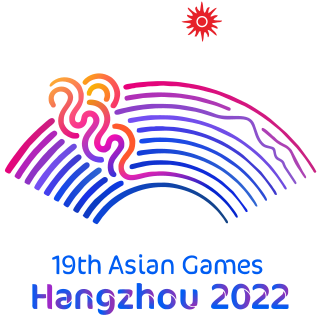
The 2022 Asian Games, officially known as the 19th Asian Games, also known as Hangzhou 2022,, will be a multi-sport event celebrated in Hangzhou, Zhejiang, China. Hangzhou will be the third Chinese city to host the Asian Games, after Beijing in 1990 and Guangzhou in 2010.
The Chinese Handball Association (CHA) is the governing body of handball and beach handball in the People's Republic of China. CHA is affiliated to the International Handball Federation and Asian Handball Federation. Founded in 1979, CHA is also affiliated to the Chinese Olympic Committee, East Asian Handball Federation. It is based in Beijing.














